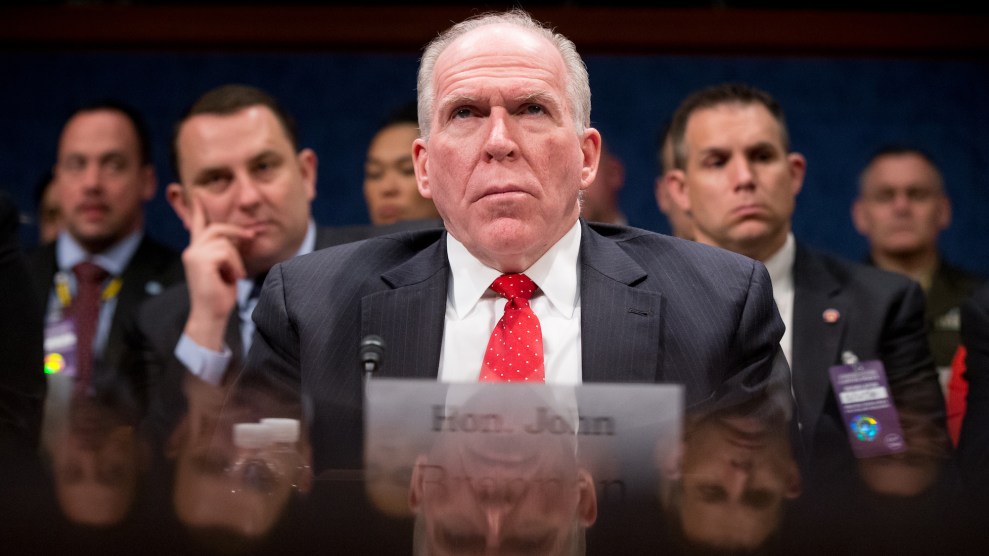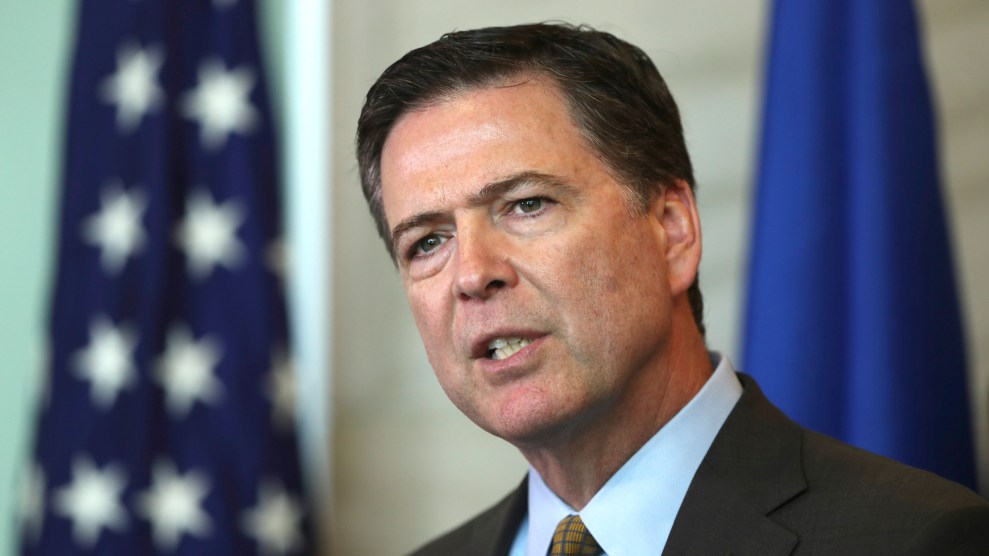
Andrew Harnik/AP
CIA director John Brennan told the Senate Intelligence Committee on Thursday that his agency had not unearthed any new evidence of ISIS cooperation in the terrorist attack in Orlando on Sunday, but he warned that the group is likely to launch new attacks as the United States and its allies continue striking the group in Iraq and Syria.
Brennan painted a positive picture of the anti-ISIS campaign in the Middle East, saying the group is losing territory, fighters, and important sources of cash in the face of American airstrikes and battlefield advances by Iraqi forces and Syrian opposition groups. But Brennan also warned that gains against ISIS have not reduced the group’s terrorism capability and global reach” and predicted that “ISIL will probably rely more on guerrilla tactics, including high-profile attacks outside territory it holds.”
Brennan, like FBI director James Comey, said his agency has “not been able to uncover any direct link” between the gunman who killed 49 people in Orlando on Sunday and any foreign terrorist groups, but emphasized that “ISIL is attempting to inspire attacks by sympathizers who have no direct links to the group.” The group encourages people with few, if any, ties to ISIS to pledge allegiance and carry out attacks in its name, giving it much wider reach and fueling the perception that it’s a powerful force in the West. The Orlando attack followed that model, featuring a shooter who only pledged allegiance to ISIS during the attack itself and may have only watched propaganda material online.
The briefing focused on ISIS but touched on other topics from the Iran nuclear deal—”So far, so good,” Brennan told the committee on Iran’s compliance with the term of the agreement—to the ongoing encryption debate and even a question on torture seemingly inspired by Donald Trump’s support for resuming the use of torture if he is elected. Brennan confirmed that he would not resume waterboarding or other acts of torture even if ordered to by the next president. “I do not believe such aggressive coercive techniques are necessary,” he said in response to a question from Sen. Ron Wyden (D-Ore.).















